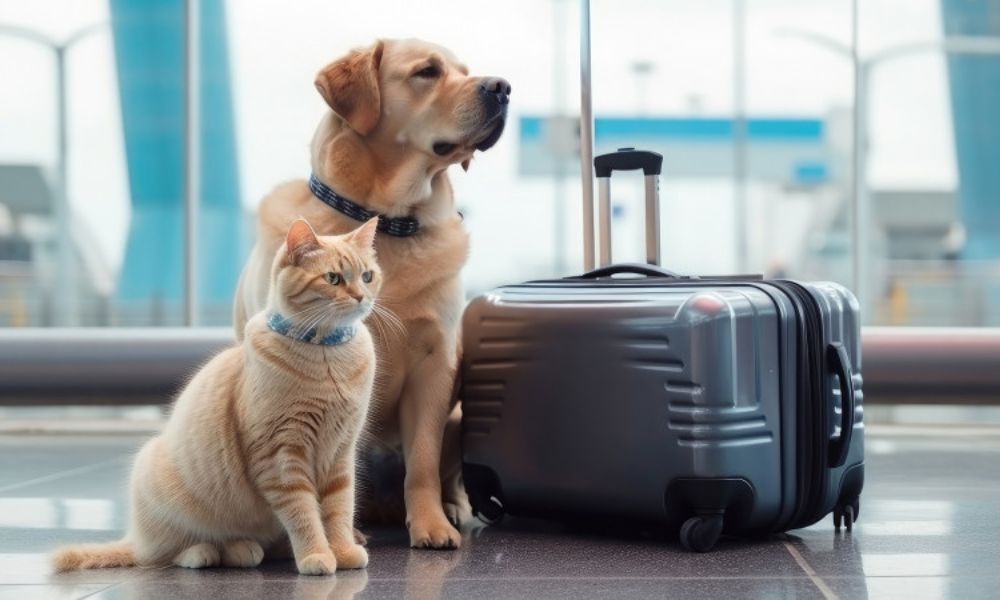
Full Video: Anthropic’s Claude and the Future of Travel Personalization. Anthropic isn’t chasing flashy AI gimmicks – it’s quietly building Claude into an infrastructure for travel’s next big leap, prioritizing trust, personalization, and business control over AI-driven traveler journey enhancements. This approach, showcased at the Skift Global Forum East in Abu Dhabi, UAE, positions Claude, Anthropic’s AI assistant, at the forefront of a rapidly evolving travel landscape. Kate Jensen, Head of Americas at Anthropic, highlighted these core tenets in a discussion with Skift CEO Rafat Ali, underscoring a strategic divergence from competitors often focused on superficial applications of artificial intelligence.
The integration of AI into the travel sector is not a novel concept, but Anthropic’s approach represents a significant shift in perspective. Previous attempts at leveraging AI often stumbled due to a lack of trust, concerns surrounding data privacy, and the perception that personalization was merely a marketing ploy. Travelers, increasingly savvy and discerning, are demanding more than just targeted advertisements; they seek genuine, personalized experiences that cater to their individual needs and preferences, while ensuring their data is handled responsibly. This demand has fueled a growing market for privacy-focused travel solutions, with an estimated 45% of travelers expressing concern over how their personal information is used by travel companies, according to a recent industry report.
Claude aims to address these concerns by providing a platform that emphasizes transparency and user control. Instead of simply automating tasks or generating generic recommendations, Claude is designed to empower travel businesses to create AI-driven solutions that are tailored to their specific customers and brand values. This approach aligns with the growing trend of "responsible AI," which emphasizes ethical considerations, fairness, and accountability in the development and deployment of AI systems. The long-term success of AI in travel hinges on building trust with consumers, and Anthropic’s focus on this aspect could prove to be a crucial differentiator.
The evolution of travel personalization can be traced back to the early days of online travel agencies (OTAs), which initially focused on providing basic information and booking services. As technology advanced, OTAs began to incorporate recommendation engines and personalized offers, but these efforts often lacked sophistication and were perceived as intrusive by many travelers. The rise of social media and mobile devices further complicated the landscape, as travelers became accustomed to receiving personalized content and recommendations from a variety of sources. However, the challenge remained of how to effectively integrate these various data points and create truly personalized travel experiences.
The potential impact of AI on the travel industry is immense, with applications ranging from personalized trip planning and itinerary optimization to real-time customer service and predictive maintenance. However, realizing this potential requires a fundamental shift in how travel businesses approach AI development. Instead of viewing AI as a tool for automating tasks and reducing costs, they need to see it as a strategic asset that can enhance the traveler journey and create lasting customer loyalty. This shift requires a significant investment in data infrastructure, AI talent, and ethical frameworks.
According to a recent report by a leading market research firm, the global travel personalization market is projected to reach $12.5 billion by 2027, driven by the increasing demand for personalized travel experiences and the growing adoption of AI-powered solutions. This growth is expected to be particularly strong in emerging markets, where travelers are increasingly tech-savvy and eager to embrace new technologies. However, realizing this potential requires addressing the challenges of data privacy, security, and algorithmic bias.
One of the key advantages of Claude is its ability to process and analyze large amounts of unstructured data, such as customer reviews, social media posts, and travel blogs. This allows travel businesses to gain a deeper understanding of their customers’ needs and preferences, and to create personalized experiences that are tailored to their individual interests. For example, a hotel could use Claude to analyze customer reviews and identify common themes and complaints, which could then be used to improve its services and amenities. Similarly, an airline could use Claude to analyze social media posts and identify emerging travel trends, which could then be used to develop new routes and destinations.

"The future of travel personalization is not about simply showing travelers more ads," says Dr. Anya Sharma, a Senior Market Analyst specializing in AI in the travel sector. "It’s about creating truly personalized experiences that are tailored to their individual needs and preferences. This requires a deep understanding of their travel history, their interests, and their budget. AI can play a crucial role in this process, but it’s important to use it responsibly and ethically."
The Skift Global Forum East in Abu Dhabi provided a valuable platform for discussing these issues and exploring the potential of AI to transform the travel industry. The event brought together industry leaders, technology experts, and policymakers to share their insights and perspectives on the future of travel. The discussion between Kate Jensen and Rafat Ali highlighted the importance of trust, personalization, and business control in the development and deployment of AI-powered travel solutions.
The regional impact of AI in travel is particularly significant in the Middle East, where tourism is a major driver of economic growth. Countries like the UAE and Saudi Arabia are investing heavily in infrastructure and technology to attract more visitors and create world-class travel experiences. AI can play a crucial role in this effort by enabling personalized trip planning, real-time customer service, and seamless travel experiences. However, it’s important to address the cultural nuances and language barriers that exist in the region.
The global implications of Anthropic’s approach extend beyond the travel industry. The company’s focus on trust, personalization, and business control aligns with a broader movement towards responsible AI, which is gaining momentum in various sectors. As AI becomes increasingly pervasive, it’s crucial to ensure that it’s used in a way that benefits society as a whole. This requires a collaborative effort between industry, government, and academia to develop ethical frameworks and best practices for AI development.
Furthermore, the emphasis on data privacy and security is particularly relevant in the context of increasing cyber threats and data breaches. Travelers are increasingly concerned about the security of their personal information, and travel businesses need to take steps to protect their data from unauthorized access. This requires implementing robust security measures, such as encryption and multi-factor authentication, and complying with data privacy regulations, such as GDPR.
"The key to unlocking the full potential of AI in travel is to focus on creating value for travelers," says Professor David Chen, a Professor of Public Policy specializing in the ethical implications of AI. "This means using AI to enhance their travel experiences, rather than simply trying to sell them more products or services. It also means being transparent about how AI is being used and giving travelers control over their data."
The integration of AI into the travel sector also raises important questions about the future of work. As AI automates tasks and streamlines processes, it’s likely to displace some jobs in the industry. However, it’s also likely to create new jobs in areas such as AI development, data analysis, and customer service. The key is to ensure that workers have the skills and training they need to adapt to the changing job market.
The future of travel personalization is not just about technology; it’s also about human connection. While AI can play a crucial role in enhancing the traveler journey, it’s important to remember that travel is ultimately about creating meaningful experiences and connecting with other people. The most successful travel businesses will be those that can strike a balance between technology and human interaction.
In conclusion, Anthropic’s Claude represents a significant step forward in the evolution of travel personalization. By focusing on trust, personalization, and business control, Anthropic is positioning itself as a leader in the responsible AI movement. The success of Claude will depend on its ability to deliver tangible value to travelers and to build trust with consumers. As the travel industry continues to evolve, AI will play an increasingly important role in shaping the future of travel. The next few years will be critical in determining how AI is integrated into the industry and whether it lives up to its potential to transform the traveler journey. A projected increase of $2.8 billion in AI travel technology investments over the next five years suggests a strong belief in its potential. The collaboration between technology providers, travel businesses, and policymakers will be essential to ensure that AI is used responsibly and ethically, creating a future where travel is more personalized, seamless, and enjoyable for everyone.



